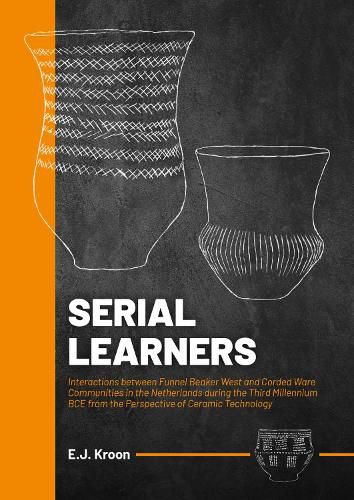Readings Newsletter
Become a Readings Member to make your shopping experience even easier.
Sign in or sign up for free!
You’re not far away from qualifying for FREE standard shipping within Australia
You’ve qualified for FREE standard shipping within Australia
The cart is loading…






5,000 years ago, a migration shaped Europe's future. Migrating communities spread across Europe within two centuries, leaving lasting changes in interconnectivity, language, and ancestry. Yet these migrating communities did not enter an empty continent. Across Europe, they encountered indigenous communities with millennia-old roots. What interactions between migrating and indigenous communities gave rise to those lasting changes?
This study sheds new light on this question with an innovative approach to ceramics. Ceramics bear traces of the production techniques which potters learned and applied to create them. The approach developed here combines a chaine operatoire analysis of these traces with network analysis and probability theory to provide a quantitative estimate of the amount of shared knowledge between the prehistoric potters who made these ceramics.
This approach is applied to ceramics from migrating Corded Ware communities and indigenous Funnel Beaker West communities in the Netherlands. The aim is to detect whether potters in these communities interacted and shared knowledge. The outcomes offer a unique perspective on this period and prehistoric migrations in general. Migrating and indigenous communities are shown to co-exist for several centuries at the start of the third millennium BCE with evidence for migrant potters learning repeatedly from indigenous potters and incorporating this knowledge into the production of Corded Ware vessels.
$9.00 standard shipping within Australia
FREE standard shipping within Australia for orders over $100.00
Express & International shipping calculated at checkout
5,000 years ago, a migration shaped Europe's future. Migrating communities spread across Europe within two centuries, leaving lasting changes in interconnectivity, language, and ancestry. Yet these migrating communities did not enter an empty continent. Across Europe, they encountered indigenous communities with millennia-old roots. What interactions between migrating and indigenous communities gave rise to those lasting changes?
This study sheds new light on this question with an innovative approach to ceramics. Ceramics bear traces of the production techniques which potters learned and applied to create them. The approach developed here combines a chaine operatoire analysis of these traces with network analysis and probability theory to provide a quantitative estimate of the amount of shared knowledge between the prehistoric potters who made these ceramics.
This approach is applied to ceramics from migrating Corded Ware communities and indigenous Funnel Beaker West communities in the Netherlands. The aim is to detect whether potters in these communities interacted and shared knowledge. The outcomes offer a unique perspective on this period and prehistoric migrations in general. Migrating and indigenous communities are shown to co-exist for several centuries at the start of the third millennium BCE with evidence for migrant potters learning repeatedly from indigenous potters and incorporating this knowledge into the production of Corded Ware vessels.